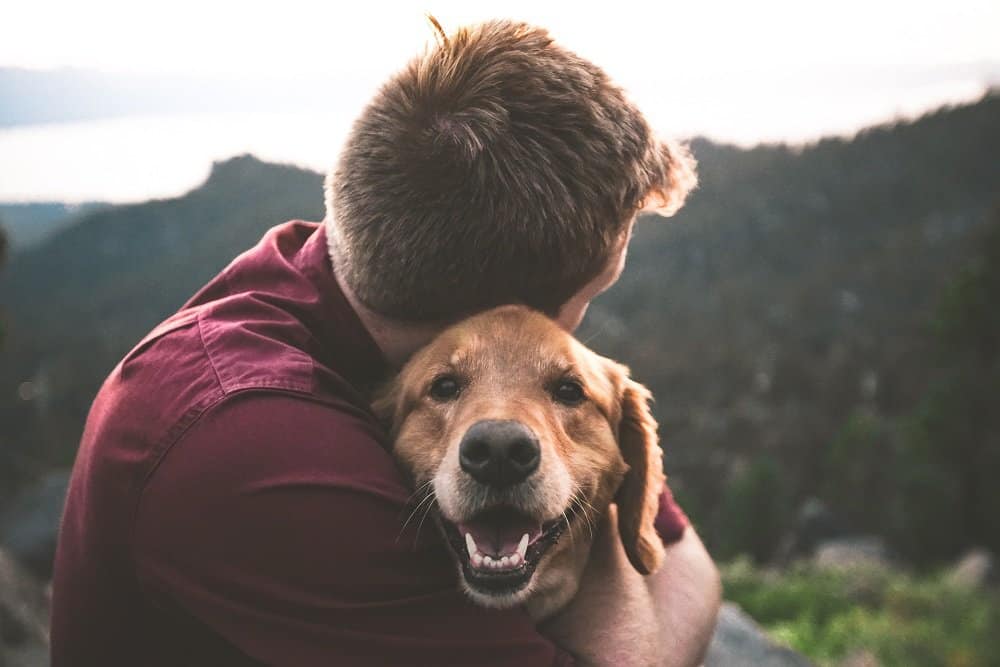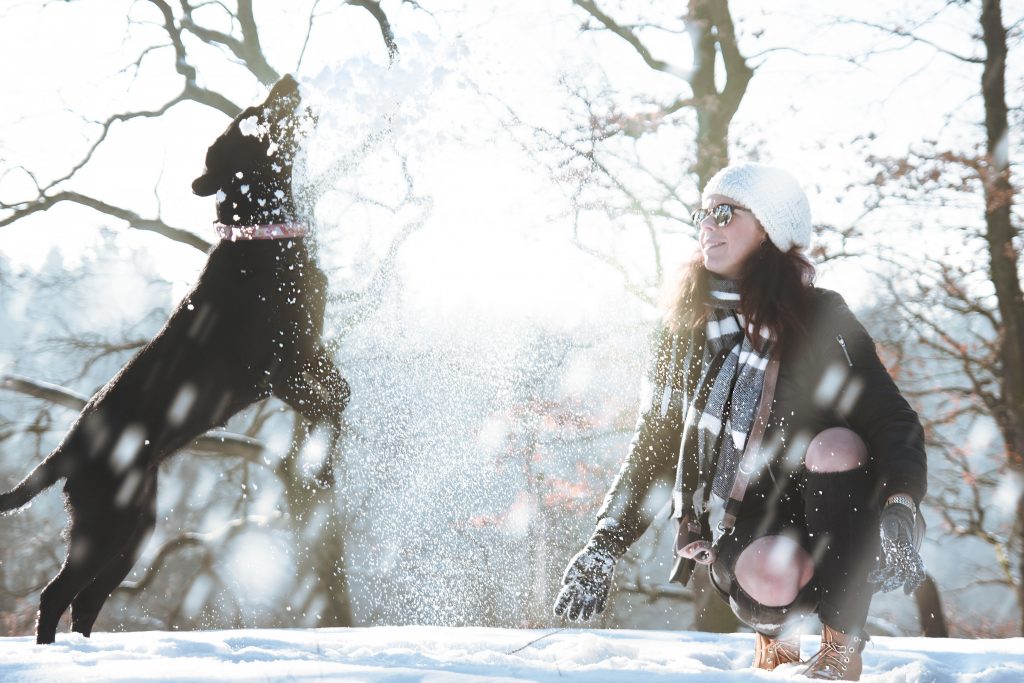We all wish that our dogs could speak so that we could know that they’re really happy. Dogs can’t speak – but much like people they have a wide range of feelings. They can be sad or happy or feel deeper emotions like anxiety or depression. Since our dogs can’t tell us if something is wrong – the only way that’s left for us is to see if they are showing signs of happiness through behavior or body language.
Dogs have unique body language and behavioral queues that can tell us whether they’re happy are not. Here are top 12 ways that we can look at our furry friends and decide if they’re having a stressed out or if they are truly happy.
1. Seeks Your Affection

A dog that is happy will be emotionally involved. They will show your affection. They will show you their belly for a belly rub. They are also going to come to you so that you can stroke them several times a day. A happy dog loves to be close to the ones that they love.
2. Relaxed Body

One of the signs for a relaxed and happy dog is the overall body language. If the muscles are relaxed and your dog is playing and bouncing around then you can be sure that he is happy. A relaxed body with good balance is the sign of a healthy and happy dog.
3. Wants to Play with You

A happy dog is usually an active dog. Dogs love to play, they love to take long walks. They basically love anything that can release their energy. Some dogs are more energetic than other dogs but all dogs seek for an outlet for all their energy. As long as they’re happy they will always want to play with you or walk with you. If your dog shows fatigue – it maybe time for a trip to the vet to check in on his physical and mental well-being.
4. Has a Good Appetite

If you have a happy dog – when you give them some food he will gobble up everything that you give. This is a strong sign that your dog is happy. If your dog is not eating the food that you give to them, they are likely suffering from something physical or psychological. One of the other things that could cause your dog to not eat is boredom. Pay attention to other signs that may coincide with the loss of appetite to really understand whether your dog is going through some kind of mental or psychological problem. If your dog is not eating well – one thing that you can do to rule out whether he’s not happy is to give him a different type of food. As long as your dog is happy he will eat up everything that you give him as long as you rotate the food type.
5. Doesn’t Destroy Things
If you come home to find that your dog has destroyed the pillows and the couch cushions, then that might be a sign that your dog is bored. A bored dog is not a happy dog. A typical happy dog will chew his toys and not destroy the furniture. So just look for signs of destructiveness at this maybe a sign of mental or physical discomfort.
6. Health is Happiness
A healthy dog is a happy dog! If he is not healthy you’ll notice other signs in your dogs body language showing (like lack of energy). If this happens take your dog to the vet as soon as possible.
7. Relaxed Eyes
If your dog is happy then his eyes will be in the normal shape. They won’t squint or widen their eyes beyond what is natural. It he is happy his eyes will be round, relaxed and happy. According to the ASPCA (American Society for the Prevention of Cruelty to Animals), “When your dog is relaxed and happy, his eyes will be their normal shape.”
8. Relaxed Mouth
Another way that you can read your dog’s mood is by observing the shape of their mouth. If their mouth and jawline show relaxed patterns then we can understand that they are happy. Just be aware that if his mouth is open and he is panting that means he’s probably stressed or hot and not happy.

9. Holds Ears Naturally
If your dog is not holding his ear in the position that’s natural for his breed, it may be a sign that something is wrong. If your dog is happy he should hold his ears in the most natural position for his breed.
10. Carries Tail Naturally
If you notice a gentle wag of the tail from side to side, that means he’s happy. If he is unhappy then the tail will not be in the most natural position. A relaxed and happy dog holds his tail in the natural position or wags it gently.
11. Sleeps Well

Dogs love to sleep. A happy dog sleeps around 16 hours a day, and if you have a puppy they will need about 20 hours of sleep a day. That’s how they have so much energy. Naps are basically recharging periods. If you notice your dog sleeping more than 16 hours it’s a sign that something is probably wrong. It could be that your dog is bored or depressed. Another clue lies in where they want to sleep.
If you notice that your dog is picking a common spot and going right to sleep – then that’s a sign that he is happy. However, if your dog is stressed out then he will wake up, get up and move to a new spot. He may get up and continue to repeat this cycle. If this is the case, try to find out what is stressing out your dog and figure out if there is an underlying health problem.
12. Shows Curiosity
Dogs love to snoop around. They are curious about everything as long as they’re happy. If your dog stops examining new things and stops sniffing around new places, then your dog probably has a problem. Similarly, if your dog is not interested in unknown people then that may also be a sign that your dog is not curious and therefore not happy.
13. Shows Excitement

When you get home from work if your dog runs to greet you and wants to jump on your lap – that’s a sure sign that your dog is happy. Your dog should show excitement about a lot of things like going for a walk, playing, dinner time, food, treats and just a thought everything else that’s interesting. If your dog is not showing excitement – it maybe time to take your dog for a trip to the vet.
So there you go – 13 signs to figure out whether our beloved furry friends are truly happy or if there is something that is bothering them.
P.S. If you like this – be sure to share this Pinterest and Facebook so that all dog parents can benefit from the information.

